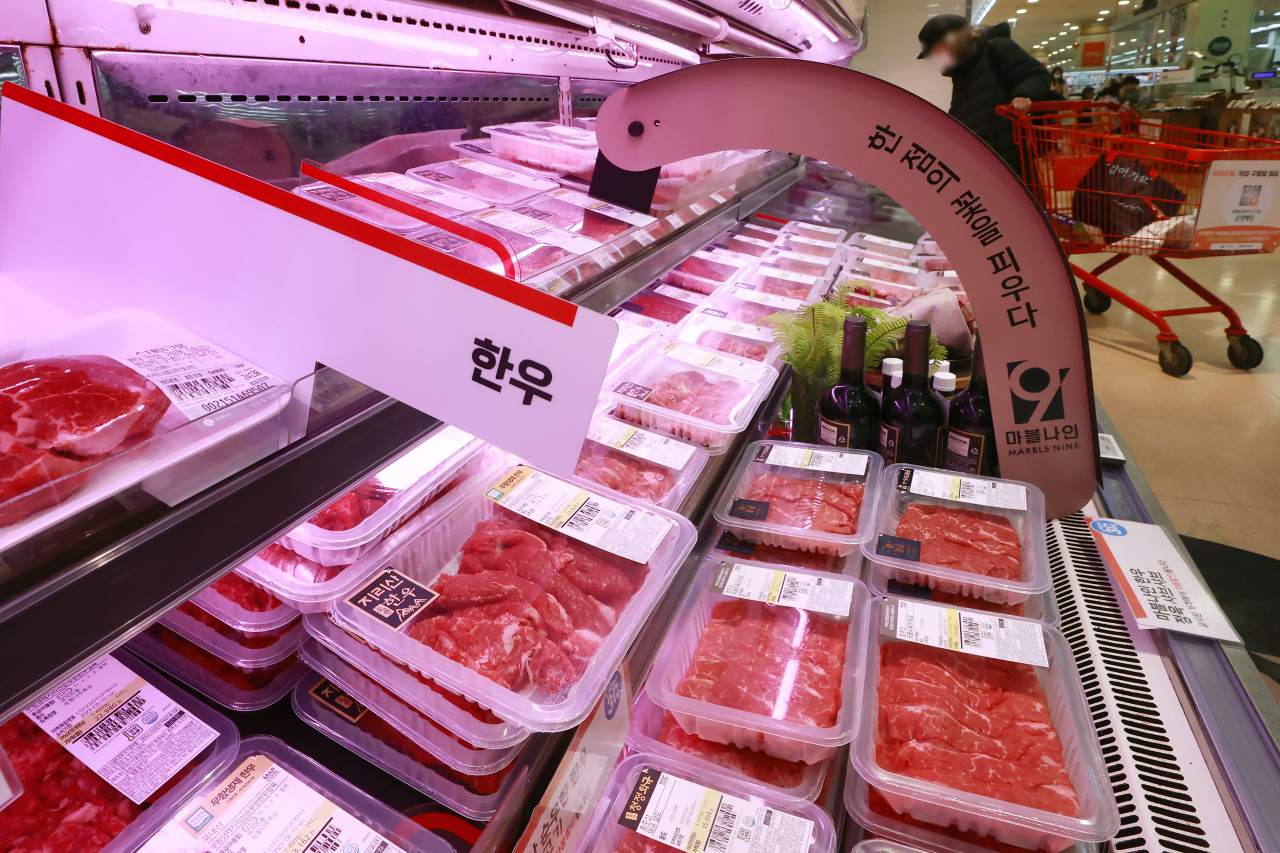 |
Different cuts of hanwoo, or Korean beef, are displayed at a supermarket chain store in Seoul on Monday. (Yonhap) |
Wholesale prices of hanwoo, or Korean beef, a highly coveted luxury food item among South Korean consumers, are estimated to drop further this year due to increased supply but sagging demand amid widespread inflation fears.
According to the Korea Rural Economic Institute Monday, the wholesale prices of Korean beef for the first half of 2023 are expected to range from 16,500 ($12.73) to 17,500 won per kilogram.
This range marks an average 20.9 percent decrease from the same period last year, when the wholesale prices for Korean beef stood at some 21,507 won per kilogram.
Experts said the price cuts in hanwoo can be attributed to two main factors: an oversupply of cows and lukewarm consumer sentiment for luxury goods, including pricey Korean beef.
“The prices of cattle feed were lowered in the early 2000s, making its cow breeding less expensive and easier. Korean farmers impregnated a lot of female cows in the high hopes of future demand,” an official from a hanwoo association said. “Since then, the number of cows has surged explosively and now they are being slaughtered for meat sale.”
“In the meantime, rate hikes and inflation fears overall have led to a decrease in demand. Farmers here are feeling the pinch from inflation directly," the official said.
In response to the oversupply, the Ministry of Agriculture is carrying out promotional activities to boost beef sales, offering hefty discounts.
Throughout this year, some 1,000 stores of Nonghyup Hanaro Mart, one of the major large supermarket chains nationwide, are selling Korean beef at a price 20 percent lower than the national average.
The ministry said it also plans to expand financial support to catering and processing companies that replace its existing product ingredients with Korean beef.
Generous incentives are also promised to reduce logistics costs for exporters of Korean beef, with an aim to increase this year’s beef exports to some 200 tons.
In order to balance supply and demand, the government said it also plans to slaughter 140,000 female additional cows by the first half of 2024, and introduce a livestock delivery price reporting system for wholesalers, processors, and livestock affiliated operators to reduce distribution costs.
"We plan to invest about 18 billion won to promote the consumption of Korean beef. We will actively aim to secure additional finances such as the government budget (to endorse the consumption of Korean beef)," said, Kim Jung-hee, head of the food industry division at the Ministry of Agriculture.
"If the number of slaughtered female cows is reduced to 140,000 as scheduled, the wholesale price of Korean beef is expected to recover (to average price) by 2025," Kim added.







![[Herald Interview] How Gopizza got big in India](http://res.heraldm.com/phpwas/restmb_idxmake.php?idx=644&simg=/content/image/2024/11/20/20241120050057_0.jpg)